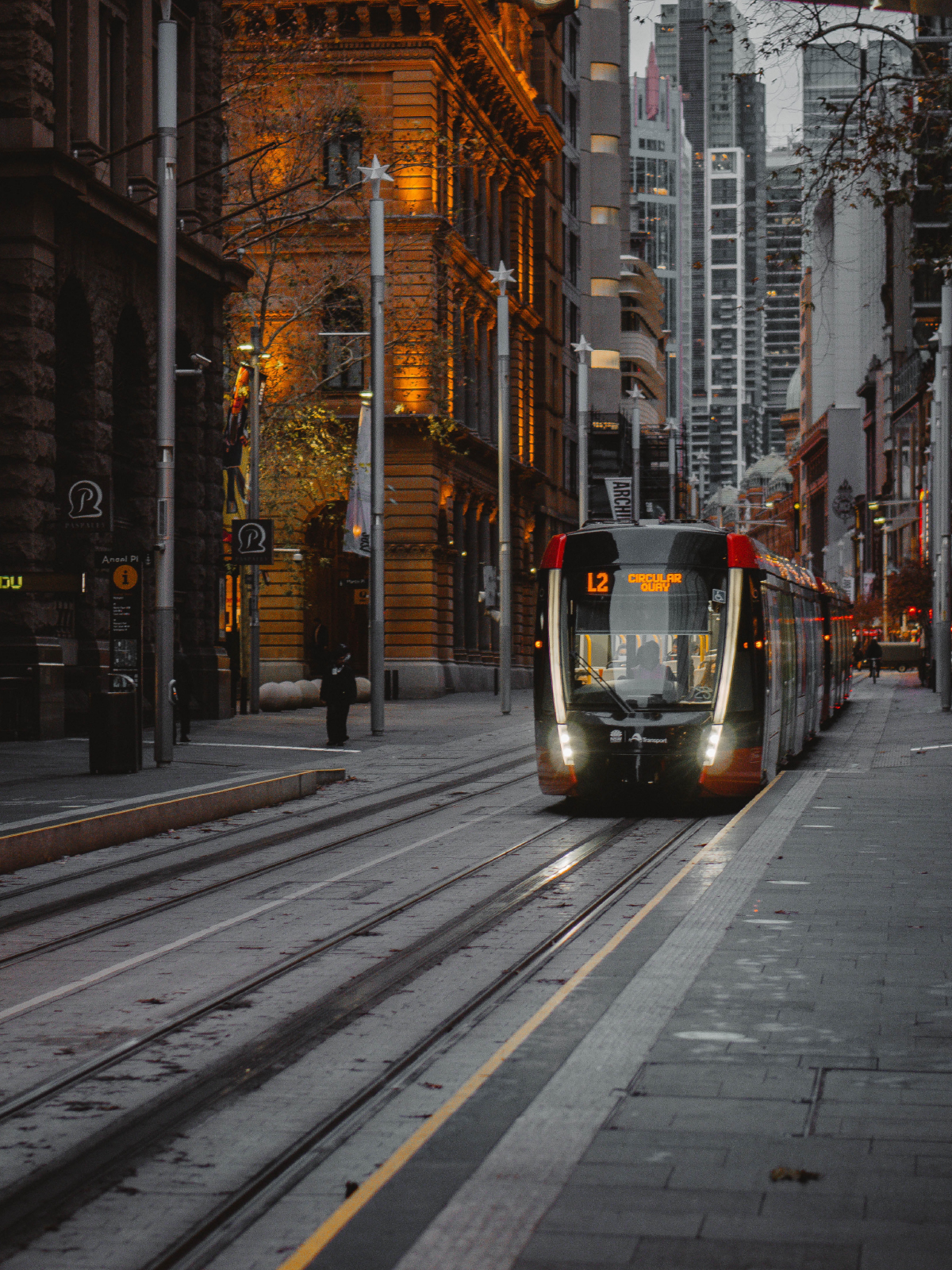
Moving to a new city is exciting, but it can be scary at first! We've collected some important information here to get you started with your new life as a student in Sydney.
Click the headings below to read about what to expect when you arrive, and some good tips for making the most out of your time.
Arriving at Sydney Airport
Kingsford-Smith Airport is the main international and domestic airport in Sydneyt. It is about 10 kilometres (6 miles) south-west of the Central Business District and Sydney Harbour.
The quickest way to get from the airport to the city is by train - this takes 13 minutes and costs about $18.50. You can also take a taxi, Uber, or arrange airport pick-up with us prior to your arrival.
What to expect
Sydney is a multicultural city where people from all over the world come to study, live, work, and travel. You might hear up to 10 different languages spoken when you walk down the street! Remember to smile, be friendly, and practise English whenever you can - Australian people are used to speaking with foreigners, and are usually very patient.
A lot of things might be different from back home, and sometimes this can give you 'culture shock'. You might have trouble adjusting to your new life. Be patient and give it some time - you will make friends and get comfortable very soon.
We also encourage you to try and make friends outside of people from your own country or who speak your native language - this will help you to improve your communication skills, and you will have friends for life from all over the world! This also helps you to understand cultural differences. People live differently all over the world, and an important part of Australian culture is learning to respect other ideas, beliefs, values, and lifestyles.
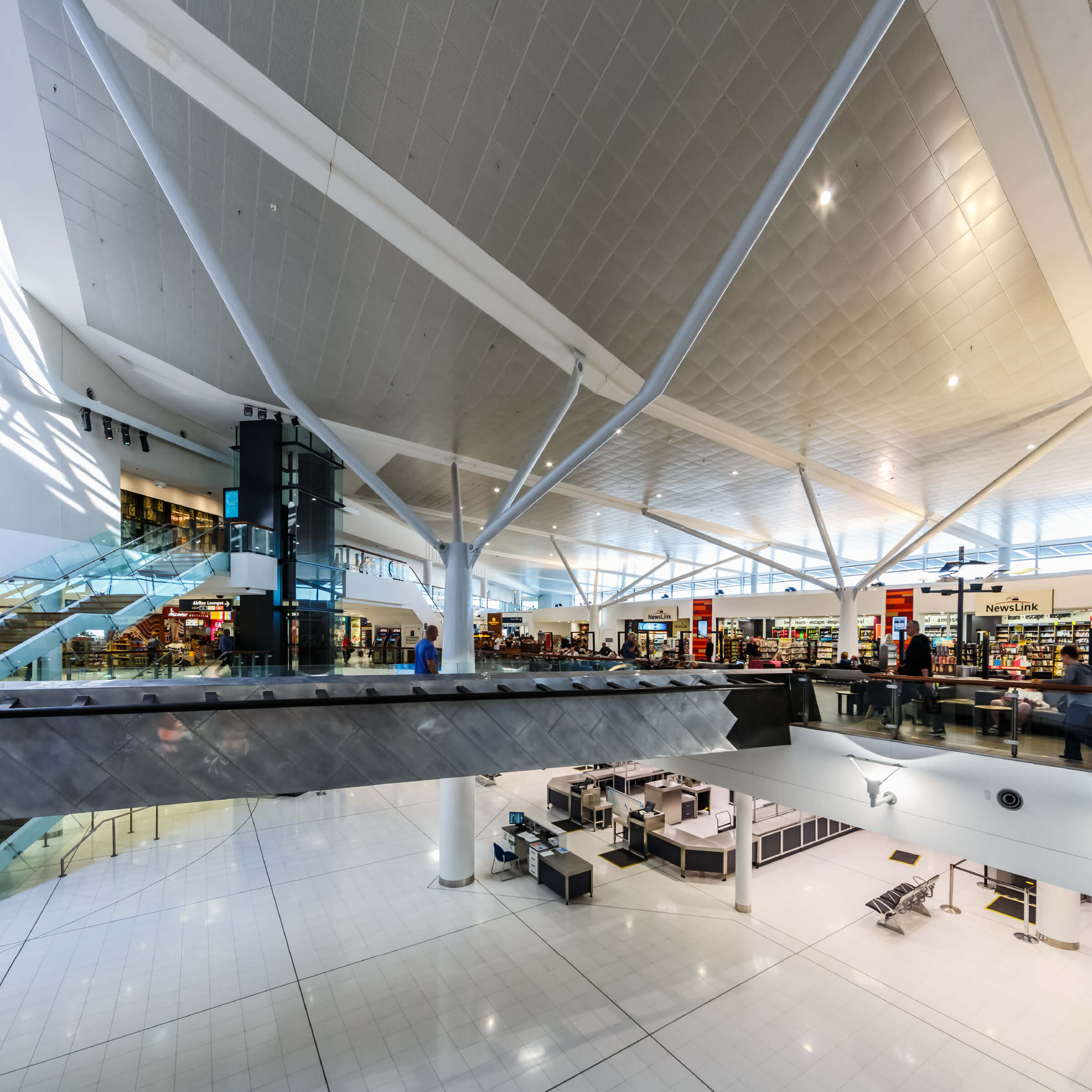
When you first arrive
If you don't pre-book your homestay or accommodation through friends, relatives, or La Lingua, we strongly recommend staying in temporary accommodation such as a backpackers, hostel, hotel, or AirBNB while you get settled and get to know the city. Each neighbourhood in Sydney is different in terms of character and price, and there are many different options.
Contact us about arranging accommodation for you before you arrive!
Homestay
Homestay accommodation gives you a great opportunity to practice your English every day and also to learn about Australian culture. Host families have a good standard of accommodation and are very friendly and kind to students.
Most accommodation is close to the city, public transport & the college. Some accommodation may have facilities like garden and entertainment areas or swimming pools. You can share meals with your host family – and practice speaking at the same time!
The average cost for homestay is between $250 and $400 per week, and includes most meals and some other services. Please contact us to arrange your homestay before you leave your country.
Shared accommodation
You can find a room in a shared house or unit (flat) by using sites such as www.gumtree.com.au, www.flatmatefinders.com.au or shared accommodation groups on Facebook. It's also helpful to ask around at La Lingua after you arrive - students are always coming and going in Sydney, and it's likely that someone at school will be able to help you find a room.
- Decide if you want a single or shared room. Remember that a single room can be very expensive in the middle of Sydney.
- Always inspect a room and meet the other flatmates before you agree to move in.
- Make sure you understand all the costs: the rent, extra expenses such as gas, electricity and water, internet, and bond (a security deposit which is refundable when you move out, if you leave your accommodation in the same condition as when you moved in.)
- Make sure you understand the system of keys for your new accommodation to avoid being locked out or locked in by your flatmate.
- Make sure you understand what your responsibilities are for cleaning, cooking, and providing your own furniture/appliances. Many of these things may be purchased cheaply second-hand (used) on websites such as Gumtree and Facebook.
The average cost for a room in a shared house in Sydney varies greatly based on location and quality. You can expect to pay anywhere from $100 up to $400 per week for your room, not including utilities.
Backpackers & hostels
This type of accommodation is great for short-term visitors and travellers, or when just arriving in Sydney, but can also be arranged for longer stays. Hostels are a great place to meet young and old people from all over the world and practice your English. They often provide free or cheap breakfast, activities, and other services such as laundry.
- Dorm room: 4-6 people, sometimes mixed gender
- Double room: 2 people
- Single room: 1 person
- Bathroom and kitchen are usually shared
The average cost for a hostel is $30 per night, or between $90 - $150 per week.
Renting an apartment
Renting an apartment or house alone in Sydney can be very expensive, and complicated if you are still learning English. You will need to read and sign a lease agreement, complete a property inspection report, and arrange to pay the full amount of your rent by bank transfer (from an Australian bank account) every two weeks. You will also be responsible for connecting and paying the gas, electricity, phone and internet bills. Your landlord may come by for an inspection every few months, but they are required to give you lots of notice before they come.
Before you move in, you will be expected to pay a security bond, usually equal to 2-4 weeks rent, and your first 2 or 4 weeks rent in advance. Make sure you inspect the property carefully before signing any paperwork, and understand all of the fees involved. You will usually sign a lease for 6 months or 12 months. Please feel free to come and talk to us if you would like help with renting an apartment while you're in Sydney!
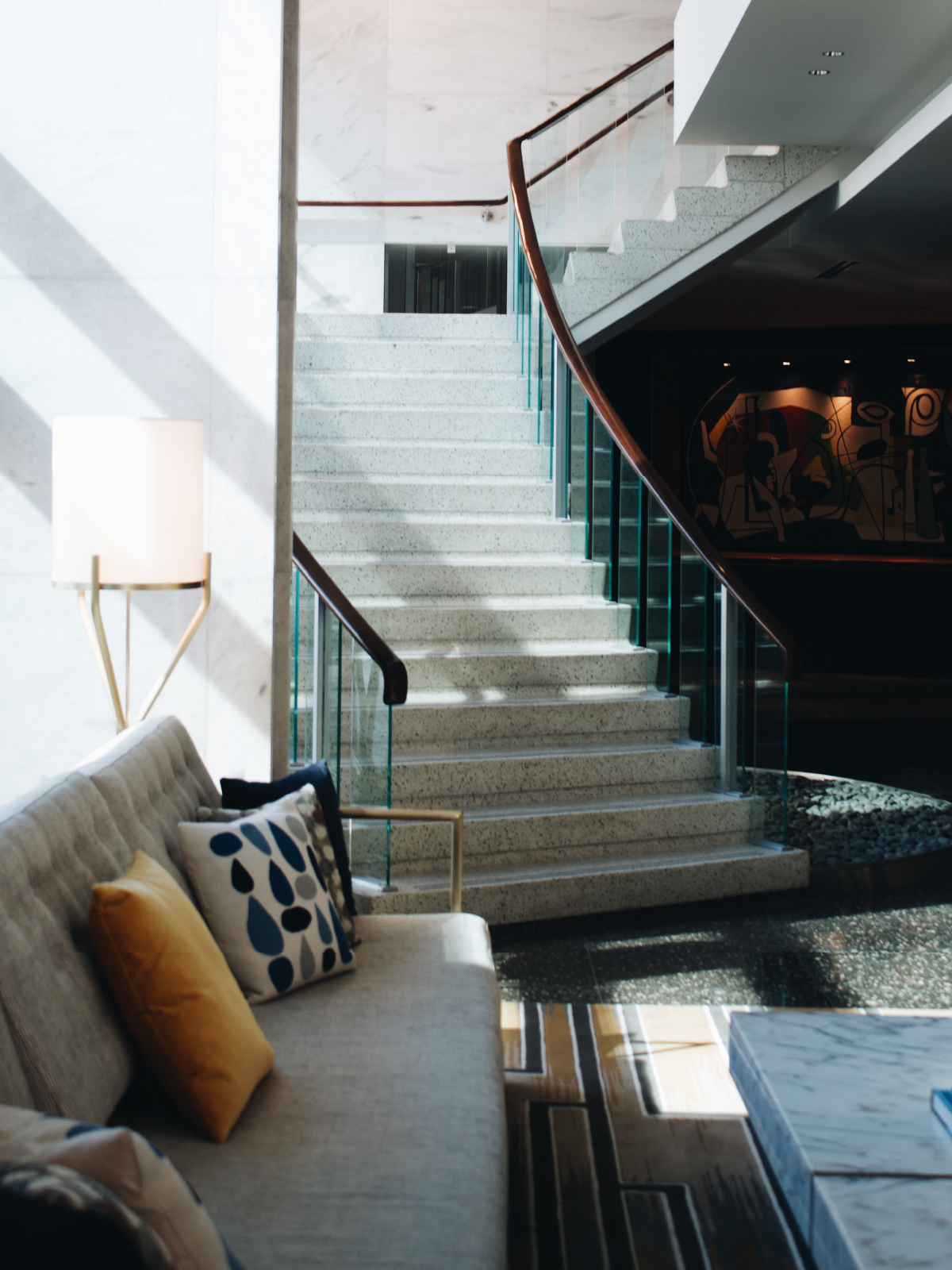
Groceries and eating out
$80 - $280 per week. You can save money by buying groceries at supermarkets such as Coles and Woolworths and cooking at home. Eating out at restaurants and cafes is a lot more expensive than eating at home.
Gas/electricity
$35 - $140 per week. Depending on your accommodation, this may be split between all house residents equally or proportionally. Make sure you check what your responsibilites are when you move in. You can save money on these bills by turning off lights, having shorter showers, turning off the TV and your computer when not in use, and unplugging all of your appliances at the wall when not in use.
Phone and internet
$20 - $55 per week. Using a lot of mobile data on your phone will be more expensive - save money by connecting to free or public WiFi when out and about. La Lingua has free student wifi available every day, with no limits. Ask your student advisor for the password!
Entertainment
$80 - ?
Depending on your lifestyle, this can be very cheap or very expensive. Eating out, going to clubs, drinking in bars/pubs and other social activities can be very expensive in Sydney and adds up quickly. Save money by asking for student discounts, looking up free things to do at https://whatson.cityofsydney.nsw.gov.au/, and spending time exploring the outdoors with friends.
School fees and expenses
You must have the money to pay your school fees and expenses before you come to Australia - the government requires this in order to grant your student visa. You shouldn't rely on your Australian job to help you pay your school fees.
Make sure you know when your fees are due and how to pay. You can check this at any time by talking to your student advisor. This will usually include your material fees (photocopies and activity worksheets we give you at school), but you will need to buy your own workbook and pens/pencils. These can be purchased very cheaply from newsagencies or stationary stores such as OfficeWorks.
Insurance
Overseas Student Health Cover (OSHC) is compulsory for all international students in Australia. You will not be able to see a doctor if you don't have health insurance, or it will be very expensive.
At La Lingua, we partner with BUPA to provide your OSHC. Plans start at approximately $46 for singles, and more for couples and families. Contact our student support team to arrange your health insurance.
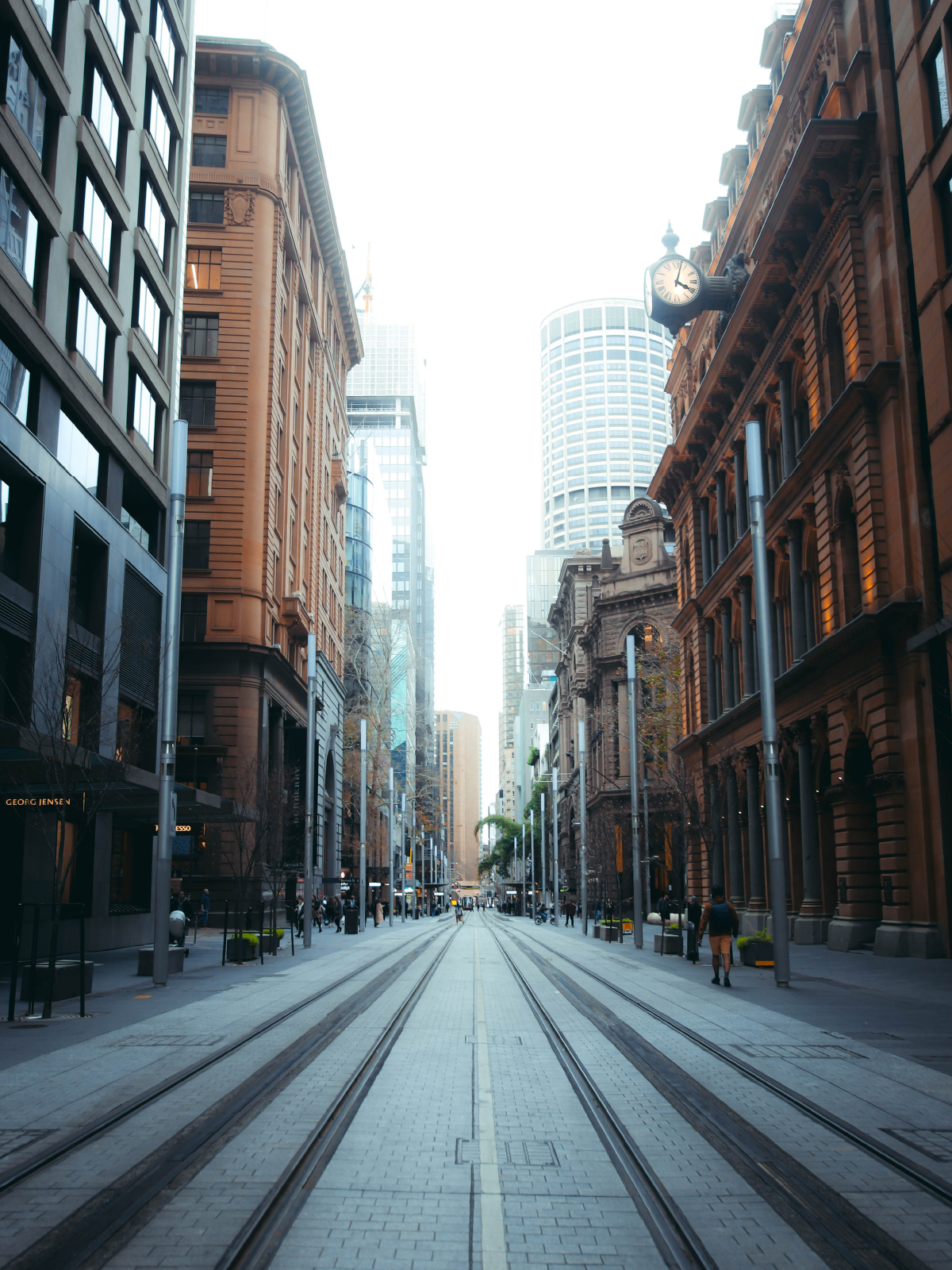
Food shopping
Coles and Woolworths are the most popular and biggest supermarket chains, and often have cheap groceries and other items. Smaller grocery stores such as IGA and Harris Farm carry more speciality items such as organic and local produce, but may be more expensive.
For cheap fruit and vegetables, check out Paddy's Markets in Chinatown or out at Flemington (about 40min by train from Central Station). Local farmers' markets in your suburb may also have cheap, fresh produce on the weekends.
Sydney is a multicultural city and you will most likely find your favourite items from back home in smaller, speciality stores such as Japanese/Korean supermarkets and the Latin market. Just ask your student advisor where to find the best deals!
Fashion
Although Melbourne is known as the home of fashion in Australia, Sydney has some great shopping for aspiring fashionistas. International department stores such as H&M, Zara, Uniqlo, and Forever 21 can be found just a few blocks away in Pitt Street mall, next to local favourites David Jones and Myer. Westfield is the largest shopping mall in Sydney, with outlets in Bondi Junction, City, Burwood, Parramatta, Penrith, and Blacktown.
Smaller boutiques dot the fringes of the city, in Surry Hills, Darlinghurst, Paddington, Glebe, and Newtown. Spend a Saturday in these suburbs exploring vintage thrift stores & markets, local fashion designers and manufacturers, and great cafe culture.
Furniture & homewares
Cheap department stores such as Kmart and Target are perfect for a student budget, and are right nearby Central Station at Broadway Shopping Centre. If you like putting things together, travel a little bit further to Rhodes or Tempe for the IKEA Swedish Homewares store. Stores such as David Jones and Myer in the city carry many items for a low to high budget.
Electronics
Buying electronics in Australia can be more expensive than other countries, due to the import and shipping costs involved in getting them here. Expensive items such as computers, smart phones, headphones and speakers can be cheaper if purchased duty and tax free upon arrival or departure from Australia.
Popular large electronics stores include JB HI-FI, Harvey Norman, Myer, David Jones, and Bing Lee. Check their current catalogues and websites for the cheapest deals.
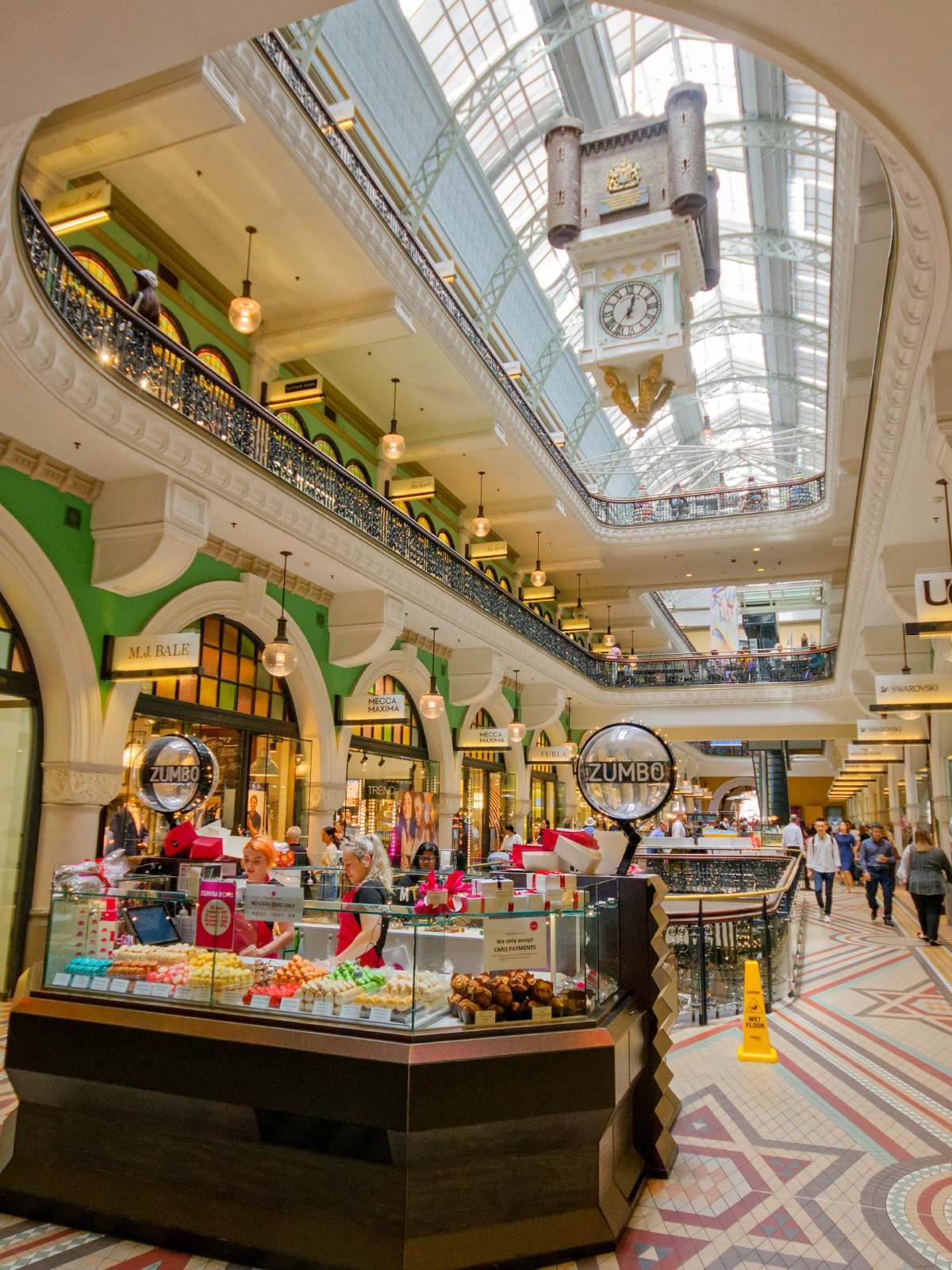
Public transport
In Sydney you can travel by bus, train, ferry, or light rail (tram). To see the different options for your area, go to http://www.transportnsw.info and enter your start and finish points. Mobile apps are also helpful on-the-go for train timetables: TripView and NextThere are the most popular and can be downloaded from the App Store or Google Play.
Before traveling, you need to get an Opal card (the card itself is free) and load money onto it for your fare. You can do this at most train stations, 7/11 stores, convenience stores, supermarkets, and newsagencies. If you 'top-up' your Opal card using your credit card, sometimes these stores will charge you a fee to cover their transaction costs.
Make sure to tap on at the start of your trip and off at the end, every time you use your Opal card, so you get charged the correct rate. It is cheaper to travel outside peak times (7am - 9am and 4pm - 6.30pm on weekdays), and on Sunday you can travel all day on buses, trains, ferries, and light rail and pay no more than $2.60!
Taxis & Uber
There are many different taxi companies in Sydney, and you can book from any of them by calling 131 008. You can also hail a taxi in the street, depending where you are and at what time. Sydney taxis run on a meter, so you don't need to negotiate the price upfront. However, make sure you tell the driver clearly where you want to go and if you know the quickest way to get there.
Uber rideshare is popular in Sydney and there are many drivers. You can download the app at the App Store or Google Play. Using Uber is handy when you know the address you're going to but you might not have been there before or you're unsure about using English to tell the driver where to go, as you can put all the information about your journey in the app. Always be polite and kind and make sure you request a pickup in a safe place. If there is high demand in your area for Ubers, the price may go up significantly.
Carshare
GoGet is a carshare service with many cars and vans all over the city. If you have a drivers license, you can sign up to rent these cars by the hour or by the day. For more information go to GoGet.Com
Car
Many people in Sydney own cars, but most people who work or study in the city use public transport. Parking in the city can be very expensive, from $25 - $100 per day depending on the location. Street parking is sometimes available, but you usually need to pay for a parking ticket at the meter.
Buying a car can cost you anywhere from $5000 up, depending on the age and quality of the car. Used cars are often available from online sites such as Facebook and Gumtree, or special sites just for used cars.
